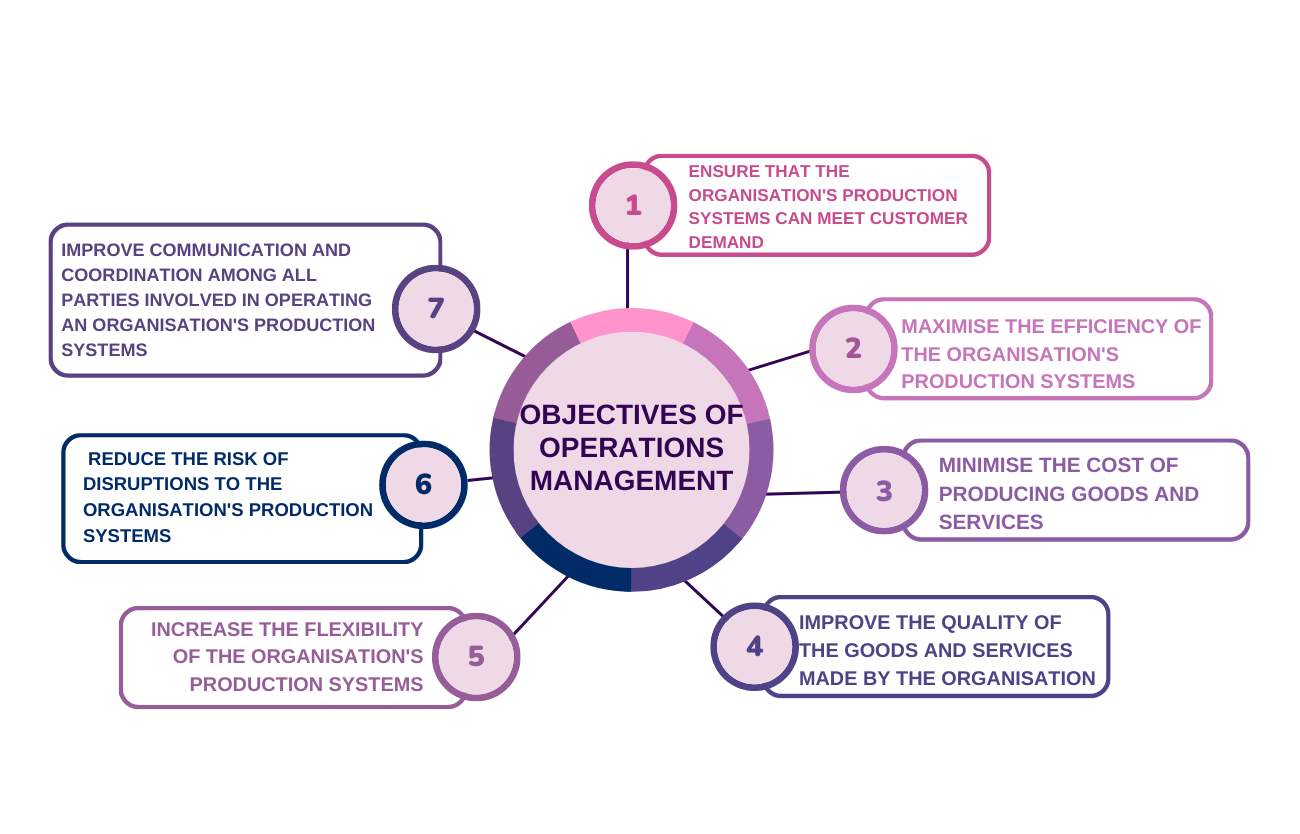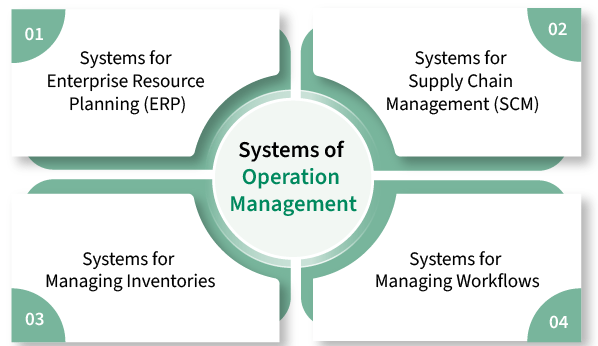
- Introduction to MBA Operations Management Jobs
- Roles and Responsibilities
- Key Industries Hiring
- Typical Job Titles
- Required Skills
- Tools and Technologies Used
- Career Path and Growth
- Job Market Trends
Introduction to MBA Operations Management Jobs
An MBA in Operations Management opens a wide range of job opportunities in various industries, from manufacturing to service sectors. This specialized degree focuses on optimizing business processes, improving efficiency, and managing supply chains. Individuals with an MBA in Operations Management are well-equipped to take on leadership roles in areas such as production planning, inventory control, logistics, and quality management. These professionals play a critical role in ensuring smooth day-to-day operations and contributing to the strategic direction of an organization. Key job roles include operations manager, supply chain manager, logistics coordinator, and process improvement consultant. Professionals in these roles can greatly benefit from PMP Training which equips them with the project management skills necessary to streamline operations, manage complex supply chains, and lead process improvement initiatives effectively. Companies seek candidates who possess strong analytical skills, the ability to solve complex problems, and a keen understanding of organizational dynamics. With the increasing focus on cost reduction, operational efficiency, and customer satisfaction, the demand for professionals skilled in operations management continues to grow. An MBA in Operations Management also allows for career advancement, offering pathways to senior leadership positions such as director of operations or chief operating officer (COO). As businesses increasingly rely on technology and data-driven strategies, professionals with expertise in operations management are positioned to make a significant impact on business success, ensuring that companies remain competitive in a fast-paced, ever-evolving marketplace.
To Explore PMP in Depth, Check Out Our Comprehensive PMP Certification Training To Gain Insights From Our Experts!
Roles and Responsibilities
- Process Optimization: Focus on improving business processes through data analysis and lean practices to enhance operational efficiency in operations and supply chain management.
- Inventory Management: Oversee the inventory levels, ensuring that the right amount of products is available at the right time without overstocking or understocking, crucial in operations and supply chain management. A strong understanding of inventory management is essential for those pursuing a Product Manager Career Path, as it helps ensure product availability aligns with customer demand and business objectives.
- Supply Chain Coordination: Collaborate with suppliers, manufacturers, and distributors to streamline the supply chain, ensuring smooth operations from production to delivery.
Professionals in Operations and Supply Chain Management are responsible for overseeing the end-to-end processes that ensure the efficient delivery of goods and services. Their role is essential for maintaining the balance between supply and demand, managing resources effectively, and ensuring cost optimization. Below are the key roles and responsibilities of individuals in this field:

- Quality Control: Monitor and maintain quality standards in production, ensuring that products meet customer expectations and regulatory requirements.
- Cost Management: Work to reduce costs without compromising on quality or service by analyzing and improving operational processes within operations and supply chain management.
- Risk Management: Identify and mitigate potential risks in the supply chain, including disruptions, shortages, or delays, to ensure smooth operational flow.
- Operations Manager: Oversees daily operations, ensuring that business processes run efficiently and that resources are used effectively.
- Project Manager: Leads projects from inception to completion, managing budgets, timelines, and resources while coordinating with various teams. These responsibilities are essential in Product Manager Roles, where professionals must ensure that products are developed efficiently, meet customer needs, and align with the company’s strategic objectives.
- Supply Chain Manager: Responsible for managing the supply chain, ensuring the efficient movement of goods and services from suppliers to customers.
- Process Improvement Specialist: Focuses on analyzing and optimizing business processes to reduce waste and improve overall performance.
- Logistics Coordinator: Manages the flow of goods, ensuring that inventory is maintained and products are delivered on time to meet customer demand.
- Operations Analyst: Uses data analysis to monitor performance metrics, identify areas for improvement, and help optimize operations.
- Project Management Software (e.g., Microsoft Project, Asana, Trello): These platforms help plan, organize, and track project timelines, tasks, and team collaboration.
- Enterprise Resource Planning (ERP) Systems (e.g., SAP, Oracle, Microsoft Dynamics): ERP systems integrate various business processes, helping to manage resources, inventory, and financials in real-time.
- Supply Chain Management Software (e.g., SAP SCM, Oracle SCM, Kinaxis): These tools assist in monitoring and managing the flow of goods, tracking inventory, and ensuring smooth logistics operations.
- Data Analytics Tools (e.g., Tableau, Power BI, Excel): These tools are used to analyze data, generate reports, and monitor key performance indicators (KPIs) for informed decision-making.
- Collaboration Tools (e.g., Slack, Microsoft Teams, Zoom): These platforms enhance communication among team members and stakeholders, ensuring effective collaboration across various locations.
- Time and Resource Management Tools (e.g., Smartsheet, Monday.com, Wrike): These tools help allocate resources, track time, and monitor project progress to ensure deadlines are met.
Key Industries Hiring
Various industries are actively seeking professionals with expertise in project operations to enhance efficiency and streamline processes. The construction, manufacturing, and technology sectors are among the top industries hiring project operations specialists. In construction, project operations professionals are essential for overseeing large-scale projects, managing timelines, budgets, and resources. Similarly, the manufacturing industry relies heavily on project operations to optimize production workflows and ensure timely product delivery. In the technology sector, project operations professionals manage software development projects, coordinating between teams and ensuring the efficient allocation of resources. Additionally, logistics and supply chain management companies also value project operations expertise, as it helps ensure smooth delivery, timely inventory management, and effective handling of customer orders. Consulting firms and financial services are increasingly hiring project operations professionals to lead cross-functional teams and manage complex client projects. The Importance of Strategic Management in these roles cannot be overstated, as it enables professionals to align project objectives with broader organizational goals, ensuring that projects are completed efficiently and effectively while driving business success. Healthcare and pharmaceuticals are also growing sectors, where project operations specialists help in managing large research or hospital projects, ensuring that all resources are utilized effectively and deadlines are met. With businesses increasingly focused on project-based work, the demand for skilled professionals in project operations is rising across these key industries, providing a wealth of career opportunities for those with the right expertise.
Are You Interested in Learning More About PMP? Sign Up For Our PMP Certification Training Today!
Typical Job Titles
In the field of operations and project management, professionals can pursue a variety of roles that cater to different levels of responsibility and expertise. These positions are essential for ensuring the smooth execution of projects, optimizing operational processes, and driving business efficiency.
Are You Preparing for PMP Jobs? Check Out ACTE’s Project Management Interview Questions & Answer to Boost Your Preparation!
Required Skills
Professionals in operations and project management must possess a diverse set of skills to effectively manage complex processes and ensure project success. Strong problem-solving skills are essential, as these professionals need to identify issues and implement solutions quickly and efficiently. Project management skills are also critical, including the ability to plan, execute, and monitor projects from start to finish while staying within budget and meeting deadlines. Proficiency in supply chain management is vital for coordinating the flow of goods and services, ensuring that all aspects of the supply chain are working smoothly. Additionally, excellent communication skills are necessary to collaborate with cross-functional teams, stakeholders, and vendors. Knowledge of data analysis and reporting tools is another key skill, as it enables professionals to assess performance, track progress, and make data-driven decisions. PMP Training helps professionals develop the ability to manage projects efficiently, incorporating data analysis techniques to monitor progress, evaluate performance, and ensure successful project outcomes. In the realm of operations management, a deep understanding of process optimization, resource allocation, and workflow design is crucial to improve overall efficiency. Leadership skills are also important, especially for roles that involve managing teams or overseeing multiple projects simultaneously. Professionals with expertise in these areas can navigate the complexities of operations and project management, driving business success and ensuring that organizational objectives are met.

Tools and Technologies Used
In the field of operations and project management, various tools and technologies are employed to streamline processes, enhance productivity, and ensure successful project delivery. These tools help professionals manage resources efficiently, track project progress, and optimize business operations. Here are some of the most commonly used tools and technologies:
Career Path and Growth
A career in operations and project management offers significant opportunities for growth and advancement across various industries. Professionals in this field typically begin in entry-level positions such as operations coordinator or project assistant, where they gain hands-on experience in managing day-to-day activities and supporting project teams. As they develop their skills in project management and operations, they can progress to roles such as operations manager, project manager, or supply chain coordinator. Understanding the difference between CSM vs PSM (Certified ScrumMaster vs Professional Scrum Master) can be particularly valuable, as it helps professionals choose the right certification and methodology for managing agile projects and leading cross-functional teams effectively. With a strong track record of successful project delivery and process optimization, individuals can move into mid-level positions such as senior project manager, operations director, or supply chain manager. These roles involve overseeing larger teams, managing more complex projects, and contributing to strategic decision-making processes. At the senior level, professionals can advance to executive positions like vice president of operations, chief operations officer (COO), or program director, where they are responsible for shaping the organization’s overall operations strategy and driving large-scale business initiatives. Continuing education, certifications, and hands-on experience in operations management and project operations can accelerate career progression. Additionally, the increasing reliance on data and technology across industries ensures that professionals with expertise in these areas are well-positioned for leadership roles, offering long-term career growth and development opportunities.
Are You Considering Pursuing a Master’s Degree in PMP? Enroll in the PMP Masters Program Training Course Today!
Job Market Trends
The job market for Operations Management is evolving rapidly as businesses adapt to new technologies, global competition, and changing consumer demands. Operations managers are now expected to possess a blend of traditional skills in supply chain management, production planning, and process optimization, alongside a strong understanding of digital tools like AI, automation, and data analytics. The increasing focus on sustainability and efficiency means companies are seeking professionals who can streamline operations while minimizing environmental impact. PMP Training provides individuals with the project management expertise needed to implement sustainable practices, optimize processes, and reduce waste, helping organizations achieve their environmental and operational goals. Additionally, the rise of e-commerce and globalization has led to a growing need for operations managers with expertise in logistics, inventory management, and cross-border operations. Roles within this field are becoming more specialized, with positions focusing on areas like risk management, quality control, and strategic sourcing. Moreover, as businesses continue to embrace flexible work environments, remote operations management roles are becoming more prevalent. In response to these trends, professionals with a strong background in both technical and leadership skills are highly sought after. The job market for Operations Management professionals remains robust, with growing demand for those who can drive efficiency, adaptability, and innovation across organizations. As industries continue to evolve, the need for skilled operations managers will only increase, offering numerous career opportunities.





